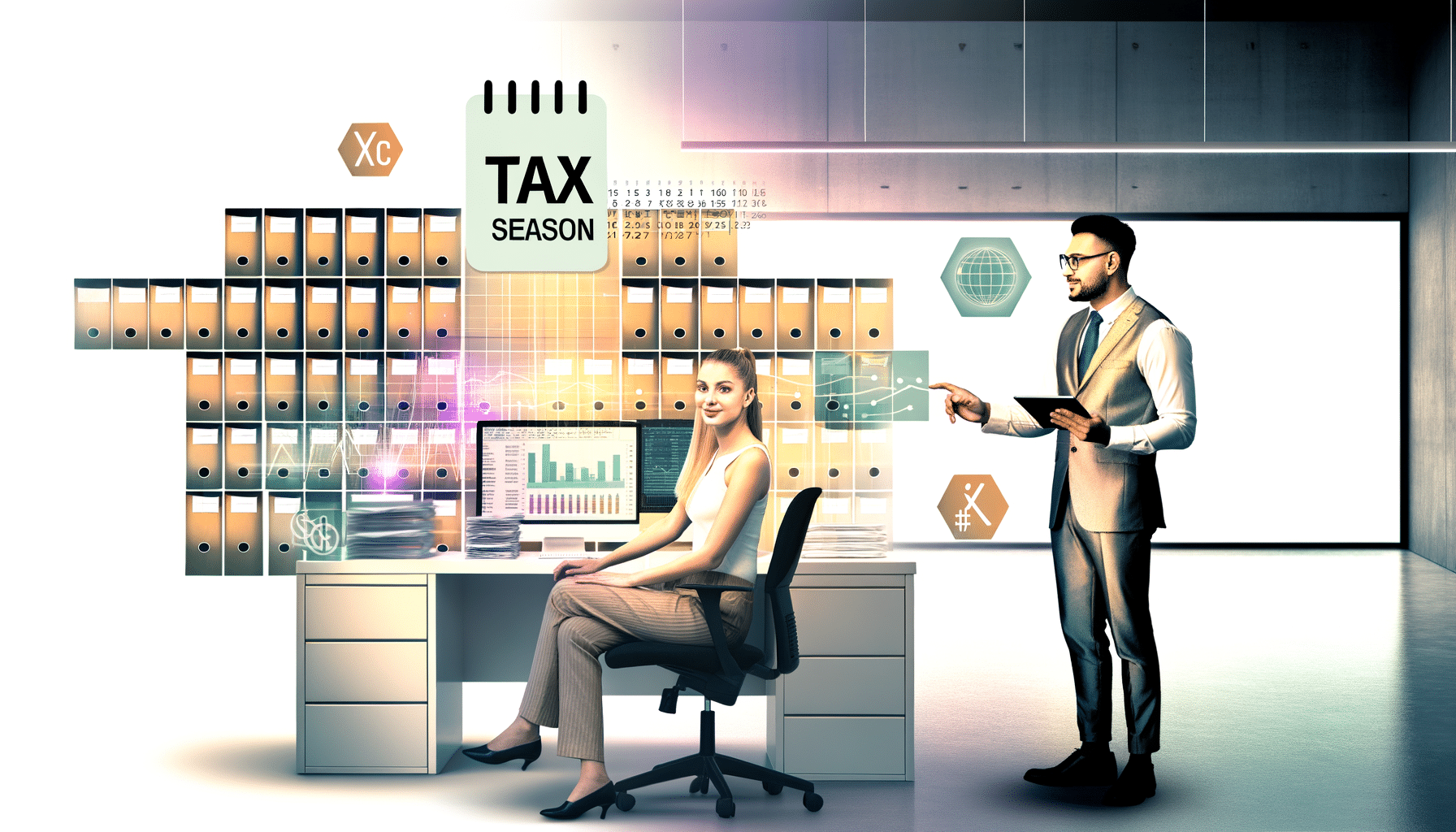- AI in Finance
- November 16, 2024
Machine Learning in Tax Record Management: A CPA’s Guide

As the founder of RecordsKeeper.AI, I’ve witnessed firsthand how technology is transforming industries. One sector that’s particularly ripe for innovation is tax record management, an area that often involves cumbersome processes and rigorous compliance requirements. Today, I’m excited to delve into how machine learning (ML) can revolutionize this field, making it not just manageable but strategically advantageous.
The Challenges in Tax Record Management
For many CPAs, dealing with tax records can be daunting. The volume of paperwork, coupled with strict compliance regulations, can make record-keeping seem overwhelming. Furthermore, ensuring accuracy while maintaining confidential client information requires precision and diligence.
However, challenges often dictate innovation. The more complex the problem, the higher the potential for groundbreaking solutions. This is where machine learning steps in, offering an automated, efficient, and reliable approach to managing tax records.
Harnessing ML Automation for Efficiency
Machine learning automation changes the landscape of tax record management by streamlining processes that once relied heavily on manual input. Automated solutions can now categorize and tag tax records based on patterns and learning algorithms, reducing not only the workload but also the potential for human error.
Consider this: with ML, tax filings, invoices, and financial statements can be automatically classified and stored securely, allowing for quick retrieval using natural language queries. This not only saves valuable time but also enhances the CPA’s ability to deliver timely services and focus on higher-value advisory roles.
Key Benefits of ML in Accounting
- Accuracy and Precision: ML algorithms improve accuracy by continuously learning and adapting to new data, thus minimizing errors in tax filings.
- Time Savings: Automation frees up time, giving CPAs the bandwidth to focus on strategic planning rather than data entry.
- Enhanced Security: ML-based systems provide robust security features, ensuring that all sensitive information is handled with the utmost confidentiality.
- Regulation Compliance: Automated systems keep track of regulatory changes, ensuring that all processes are up to date with the latest tax legislation.
Navigating Compliance with Machine Learning
One of the more daunting aspects of tax record management is ensuring compliance with regulatory standards. Thanks to machine learning, compliance management can be an integrated and automated part of the workflow.
ML systems can be programmed to recognize and adapt to changes in tax laws, automatically updating company protocols to maintain compliance. This reduces the risk of non-compliance, which can result in costly penalties and tarnish reputations.
Furthermore, audit-ready reports can be generated efficiently, offering a transparent view of records whenever needed. For CPAs, this means less time spent on compliance tasks and more time providing value to clients through advisory services.
The Future of Tax Record Management
Machine learning and automation are just the beginning of a new era in tax record management. As technology evolves, it will continue to offer even more advanced solutions aimed not only at simplifying existing processes but at creating opportunities for strategic growth and innovation.
At RecordsKeeper.AI, we’ve integrated blockchain technology to ensure that all data is immutable and tamper-proof. This integration guarantees data integrity, providing an extra layer of assurance that your records are reliable and auditable at any time.
Conclusion: Embracing Innovation
Embracing machine learning in tax record management offers CPAs an unprecedented opportunity to enhance efficiency and accuracy in their operations. By automating mundane tasks and ensuring compliance, CPAs can focus on what they do best—providing insightful financial advice and fostering client relationships.
If you’re interested in exploring how ML automation can transform your approach to tax records, I encourage you to explore all that RecordsKeeper.AI has to offer. Stay ahead of the curve by modernizing your record management practices today.
For more insights on embracing technology in accounting and compliance, follow along as I continue to share my journey and experiences as a founder in this exciting tech space. Together, we can pave the way for innovation in tax record management.
Toshendra Sharma is the visionary founder and CEO of RecordsKeeper.AI, spearheading the fusion of AI and blockchain to redefine enterprise record management. With a groundbreaking approach to solving complex business challenges, Toshendra combines deep expertise in blockchain and artificial intelligence with an acute understanding of enterprise compliance and security needs.
Related Posts

Handling Rush Financial Report Requests
Managing urgent requests for financial documentation.
- December 20, 2024

Seasonal Record Management for Tax Firms
Organizing records during peak tax season efficiently.
- November 24, 2024
Archives
- January 2025
- December 2024
- November 2024
- October 2024
- September 2024
- August 2024
- July 2024
- June 2024
- May 2024
- April 2024
- March 2024
- February 2024
- January 2024
- December 2023
- November 2023
- October 2023
- September 2023
- August 2023
- July 2023
- June 2023
- May 2023
- April 2023
- March 2023
- February 2023
- January 2023
- December 2022
- November 2022
- October 2022
- September 2022
Want to get more content like this?
Signup to directly get this type of content to your inbox!!
Latest Post
Document Control for Equipment Maintenance
- January 20, 2025
Managing Records for Multiple Clients
- January 19, 2025
Handling Conference Documentation
- January 18, 2025
Setting Up Department Record Reviews
- January 17, 2025





